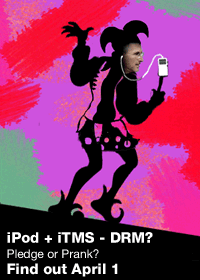Nachdem Brasilien immer wieder mit Zwangslizenzen gedroht hat, ist dieses Mittel nun zum ersten Mal zur Anwendung gekommen. Damit ensteht ein sehr grosser Präzendenzfall, wie Entwicklungsländer (und, so fürchtet die Pharmaindustrie, vielleicht auch bald reichere Länder) etwas gegen nicht-finanzierbare Preise lebenswichtiger Arzeneimittel unternehmen können.
Source: A2K Brasil Programme of the Centre for Technology and Society (CTS) of Fundação Getulio Vargas School of Law in Rio de Janeiro, full text
In an historical decision, the Brazilian Government issues a compulsory licence for an anti-retroviral drugYesterday, for the very first time in Brazilian history, a pharmaceutical company had its patent compulsorily licensed by the Federal Government due to its public interest. Before the issuance of the compulsory license, President Luis Inacio Lula da Silva issued a decree declaring the anti-retroviral Efavirenz of public interest.
The anti-retroviral Efavirenz, used by 38% of Brazilians under AIDS treatment, is currently held by the North-American laboratory Merck Sharp & Dohme, the owner of the patent. According to the Brazilian Government, the measure will allow a decrease of 72% on the drug’s current price now that generic versions of Efavirenz will be imported from Indian laboratories.
Merck will receive from Brazil royalties of 1,5% over the amount invested on purchising of the drug from Indian laboratories. The compulsory licensing is a legal and legitimate instrument recognized by both Brazilian law and international trade agreements, namely the TRIPs agreement of the World Trade Organisation.
According to informations provided by the Brazilian Ministry of Health, “the practice of compulsory licensing for pharmaceutical products is frequently used both by developed (Italia and Canada, for example) and developing countries. In antiviral drugs case, developing countries already used that flexibility: Mozambique, Malasya, Indonesia and, more recently, Thailand”.

